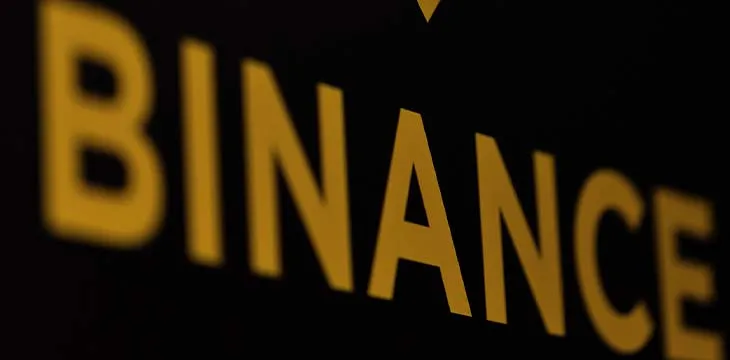|
Getting your Trinity Audio player ready...
|
Binance has once again raised the ire of BSV supporters, announcing it will convert any remaining BSV in its customers’ wallets to Binance USD (BUSD) after November 1, 2021. BSV users raised questions about the company’s timing and motives, which will likely also be of interest to regulators.
The exchange posted a brief notice on October 14, saying: “Binance will perform a conversion of the delisted Bitcoin SV (BCHSV) tokens to BUSD based on users’ holdings during the snapshot taken on 2021-11-01 at 00:00 (UTC).”
“Please note that if you hold Bitcoin SV (BCHSV) tokens at the holding snapshot time, Binance will replace them with an equivalent amount of BUSD based on the average closing price for the previous 7 days (11:59:59 PM UTC) as shown on CoinMarketCap.”
Binance USD, or BUSD, is the in-house stablecoin of the embattled cryptocurrency exchange. It trades mainly on Binance itself, and in limited ways on a handful of other minor exchanges.
The notice added that “Withdrawals of the above token from Binance will continue to be supported (subject to the network conditions and availability) until the stated snapshot date and time, and will be discontinued after that.”
On April 15, 2019, Binance posted a previous notice warning BSV holders that it would cease trading on all trading pairs for the asset on April 22, and advised them to withdraw balances. That notice also advised that BSV withdrawals would be permitted only until July 22, 2019.
However, not all customers saw the notice before the July 2019 deadline, and there were reports some had experienced difficulty withdrawing BSV or getting an answer from Binance on what had happened to their assets.
Binance is already in hot water with regulators in a number of major financial jurisdictions including Singapore, Hong Kong, the United States, and the United Kingdom. Accusations range from negligence in adequately performing KYC or reporting laundering of criminal proceeds, to market manipulation and deliberate skirting of regulations by moving its operations around several jurisdictions.
First of November?
As some on Twitter pointed out, the timing of the latest announcement is curious—on November 1, 2021, the final trial phase of the lawsuit between Ira Kleiman and Dr. Craig S. Wright (in which Wright is the defendant) will begin in Florida. A judgment in Dr. Wright’s favor, or any further indication that he was indeed the man behind the “Satoshi Nakamoto” pseudonym, could see the market price for BSV rise.
So Binance today announces they are converting their users' BSV to Binance Coins before Kleiman v Wright trial occurs, instead of giving users the BSV that they have owed for many months if not years:#Sketchy https://t.co/UalHeK8epK
— Truth_Machine, Follower of Jesus, Lover of Truth. (@cryptorebel_SV) October 14, 2021
Binance’s decision to unilaterally convert all remaining BSV in its customers’ wallets to BUSD on that date could be an indication the company expects such a move to happen. Following November 1, the company would become (at least on its own books) the “owners” of that BSV. It may also be planning to use the BSV stash to reverse any positive price moves, should the decision boost Dr. Wright’s image.
Are they dumping? Maybe they're trying to take as much as possible because they know it's going up.
— Daniel Krawisz – end mass scams with proof-of-work (@DanielKrawisz) October 15, 2021
Others speculated that Binance may not still hold the BSV assets at all, having sold them at a previous date. If that is the case, their notice to customers to withdraw the assets is in bad faith, since they’d be unable to follow the instruction.
They already sold them.
Who’s the lawyer who did the Gox class action suit? Somebody call that guy.
— VERLAN (@verlantokyo) October 14, 2021
Without insider knowledge, it’s impossible to know what Binance’s motives or intentions are. It’s also unlikely we’ll find out, unless Binance is compelled to release details in a court of law. CoinGeek previously contacted Binance PR in May 2021 to ask for information on what had happened to the Bitcoins, but never received a response.
The “Delist BSV” campaign that began in April 2019—led by Binance, Kraken, and a number of other exchanges—remains highly controversial. At the time, BSV was one of the top 10 digital assets by market capitalization and there was no valid technical, legal or even ethical reason to suddenly remove it. It was a political move, clearly coordinated between a cartel of supposedly competing companies, to manipulate the market and damage the price of a popular asset they wanted to disappear.
A sign of Binance’s pettiness towards Bitcoin SV is its insistence on referring to the asset as “BCHSV” in its official notices, rather than the more commonly used “BSV.” After all, its social media campaign was called #DelistBSV, not #DelistBCHSV.
This week’s announcement, together with the uncertainty over what Binance intends to do with its remaining BSV, is unlikely to bode well for the exchange as it continues to face regulatory scrutiny. Even if Binance thinks its jurisdiction-hopping offers it immunity from local laws, it is still subject to other conditions that could prevent it from expanding, or offering a full range of services.
Follow CoinGeek’s Crypto Crime Cartel series, which delves into the stream of groups—a from BitMEX to Binance, Bitcoin.com, Blockstream, ShapeShift, Coinbase, Ripple and
Ethereum—who have co-opted the digital asset revolution and turned the industry into a minefield for naïve (and even experienced) players in the market.

 04-25-2025
04-25-2025 





